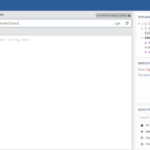Do you know what’s fun about being a science geek these days? It’s not just about acing your experiments or nailing those complex formulas anymore—you can use all the coolest tech toys.
As a science student, you can access online tools that make research, collaboration, and experimentation easier and more engaging. But with so many tools available, how do you know which ones are worth your time?
Don’t worry—we’ve got you covered. Here are five essential tools you can use as an applied science student.
5 essential online tools every applied science student should consider using
Zotero: A dynamic database manager
Zotero is a tool that manages and organizes research papers, PDFs, and web resources. That makes it essential for applied science students who often handle complex datasets like climate models or medical case studies.
For those interested in pursuing an associate of applied science degree online from institutions like GMC Global Online Leadership College, Zotero can support the data-heavy requirements of their coursework by streamlining data management and ensuring efficient organization and retrieval of research materials.
Since the tool can manage various information sources and uphold academic standards, it’s essential for students eager and ready to tackle challenging advanced science coursework.
Labster: Virtual labs for hands-on learning
Labster provides a virtual lab experience replicating real-world experiments in a digital format. It is invaluable for applied science students in biology, chemistry, and environmental science fields.
With Labster, students can conduct molecular biology, biotechnology, and physics experiments without the constraints of physical labs. This platform enables trial and error without risking costly materials and includes quizzes and assessments to reinforce learning and understanding of scientific concepts.
Mendeley: Your research assistant
Research is the backbone of science, and managing it can become overwhelming.
Mendeley functions as both a reference manager and an academic social network that allows students to collect, organize, and annotate research materials, making it easier to write well-cited papers. Mendeley’s ability to categorize and store research on various subtopics is essential for applied science students.
Additionally, you can use Mendeley to track reading trends in your field, which helps you stay current with the latest research developments.
Simulations Plus: Specialized software for medical science students
Simulations Plus provides essential simulations for pharmacokinetics and toxicology, allowing students to model drug absorption, distribution, and side effects in a safe, controlled environment.
This tool is especially valuable for those in applied pharmacology, biomedical engineering, or related fields. Using cutting-edge algorithms to simulate drug and chemical behavior in the body enhances understanding of complex biological processes. It also supports research projects, coursework, and project management by allowing interactive and controlled experimentation beyond traditional textbook methods.
Slack: A collaborative tool for science teams
Slack offers communication and collaboration, which helps streamline team-based projects and experiments with real-time messaging and file sharing.
Since students can create channels for different topics, Slack facilitates organized discussions and updates. Slack also integrates with tools like Google Drive, Dropbox, and Trello and is thus a comprehensive solution for managing collaborative efforts. Its flexibility supports interdisciplinary projects by enabling seamless interaction among team members from various fields.
Conclusion
The future of science studies is digital, and embracing these tools will help you excel in your academic journey and prepare you for a career in a tech-driven scientific world.











Leave a Reply